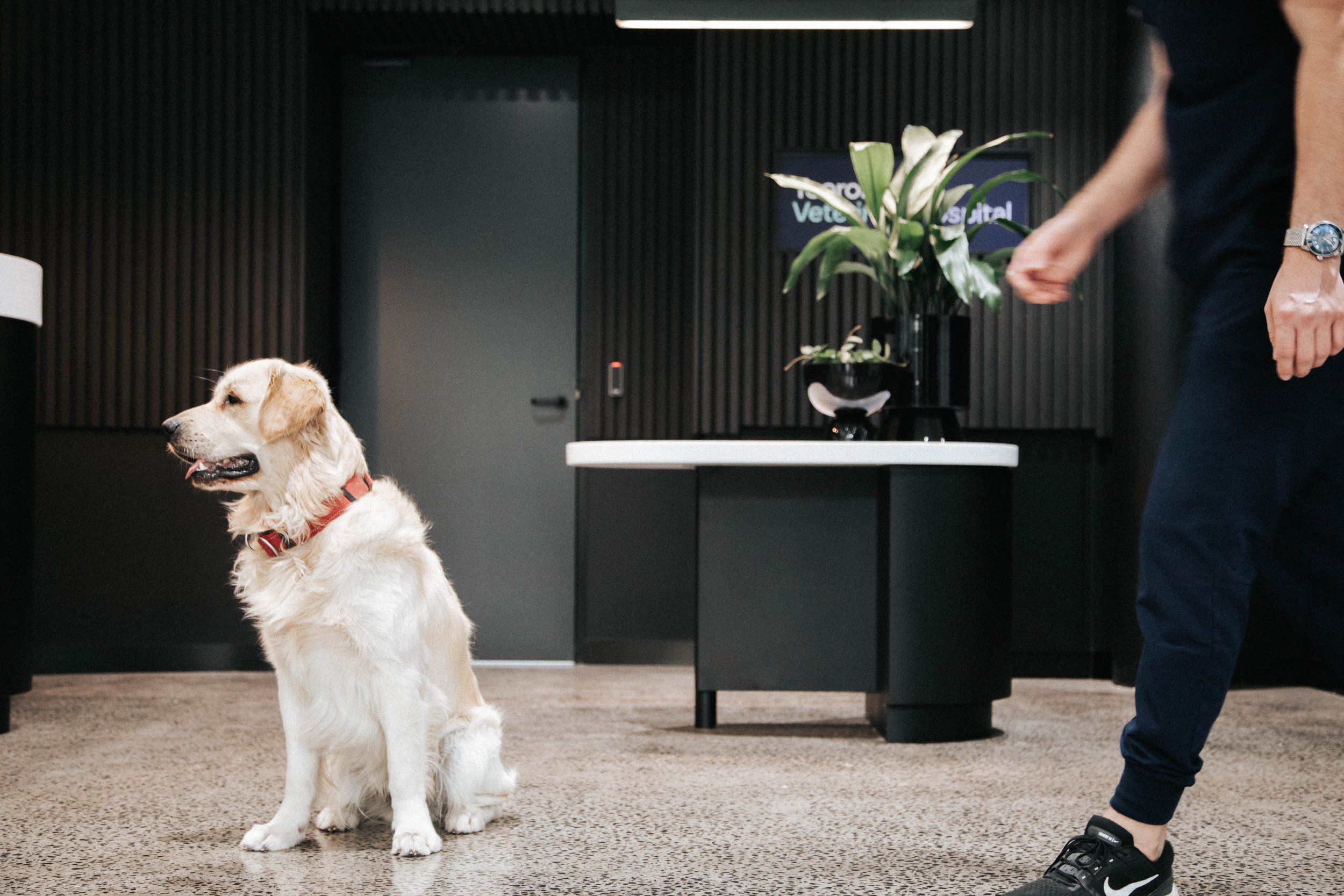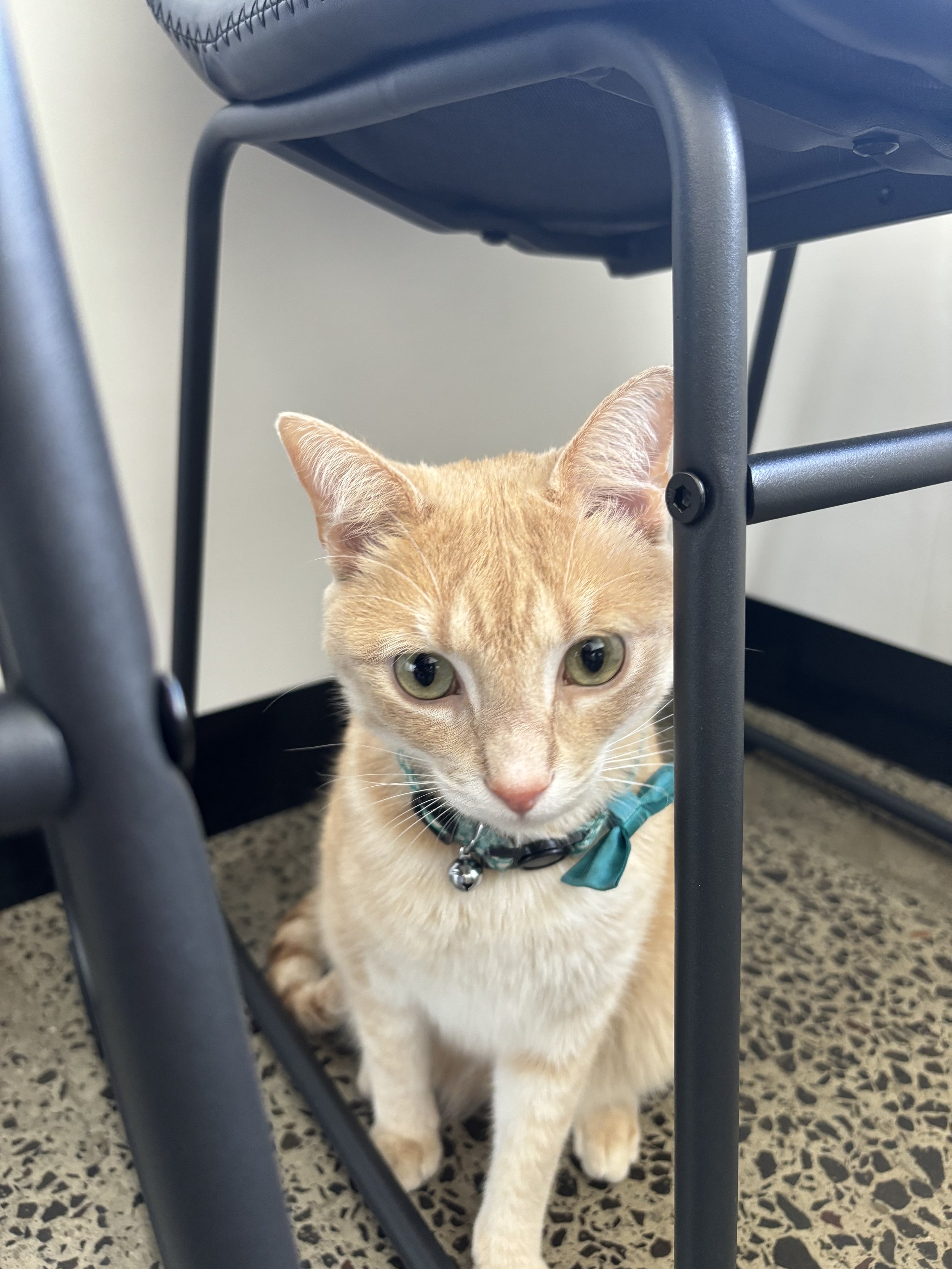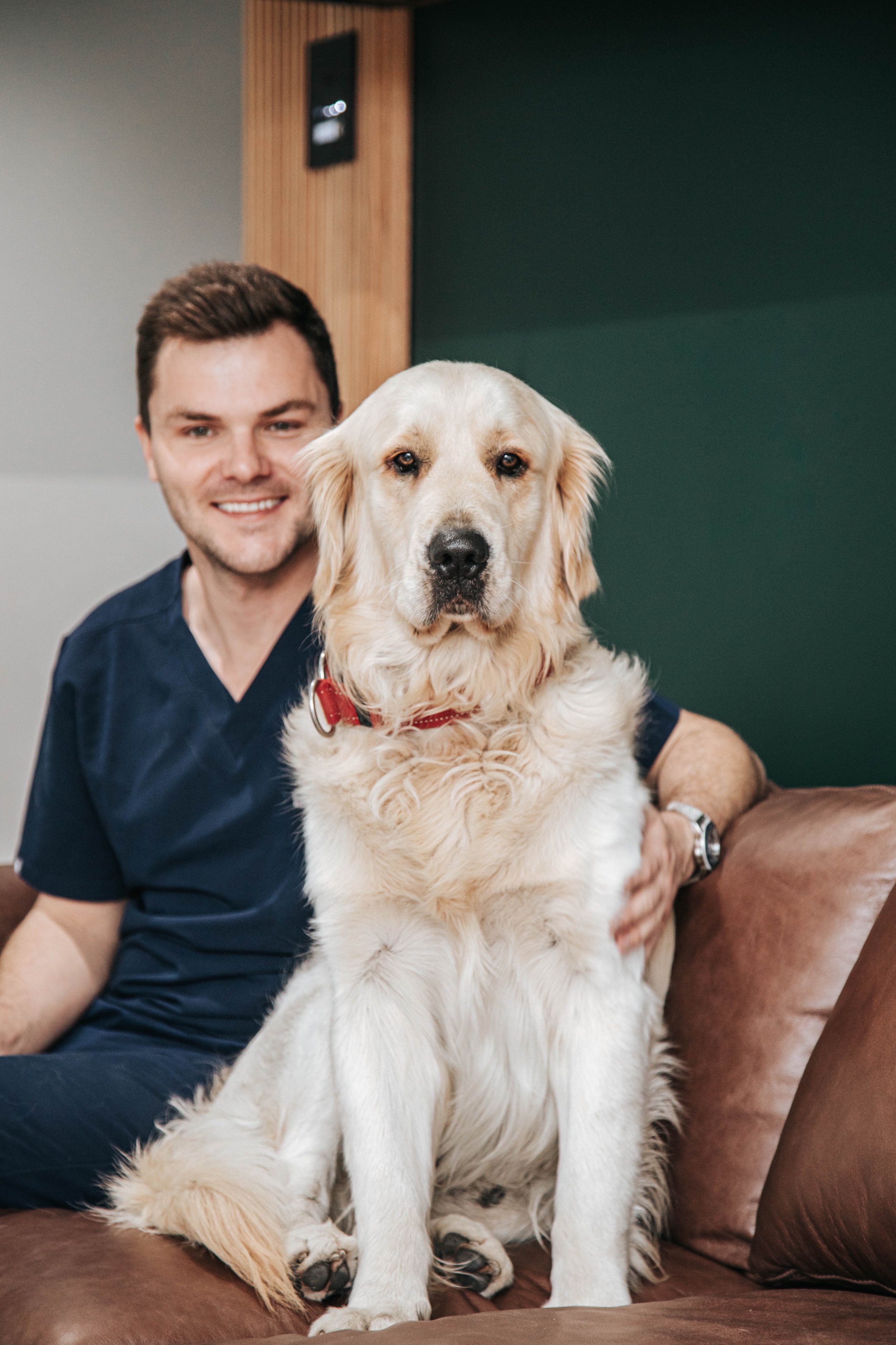
Pet Vaccinations
Protect your pet with essential vaccinations for dogs and cats in Melbourne to ensure a long and happy life.
Pet vaccines stimulate your pet's immune system to produce antibodies against specific diseases, providing immunity if they are exposed to the actual pathogen in the future.
Our pet vaccination appointments
We’re dedicated to ensuring your pet has a positive experience throughout their vaccination appointment at our Melbourne veterinary hospital.
During the vaccination appointment, our veterinarians will conduct a thorough health assessment and physical exam before administering the appropriate pet vaccines based on age, lifestyle and health status.
After the initial "primary course" of pet vaccinations, we recommend annual boosters throughout their lives to maintain immunity.
Please note, some dog vaccinations are only required once every three years.
What do pet vaccinations protect against?
Vaccinations for dogs and cats are crucial, with various types specifically designed to protect them against common and potentially life-threatening diseases.
Dog Vaccinations
Canine Parvovirus, Infectious Canine Hepatitis and Distemper make up what is commonly referred to as “the core vaccination” otherwise referred to as C3.
-
A highly contagious viral infection that is often life threatening if contracted. Outbreaks are not uncommon and vaccination is the best defence available. The virus causes severe gastrointestinal illness, destruction of immune cells, damage to the bone marrow and much more. Fortunately, dogs are extremely unlikely to contract parvovirus if their vaccinations are kept up to date.
-
Otherwise called, Adenovirus. This is a very serious viral disease that affects the liver, kidneys, and eyes of dogs. Thanks to vaccinations, this disease is relatively uncommon in Australian dogs. However, if contracted it is often sadly fatal.
-
A highly contagious viral disease that affects the respiratory, gastrointestinal, and nervous systems of dogs. Sadly, there is no cure if contracted and as a result this is typically a fatal disease. Fortunately, Distemper is very uncommon in Australia but isolated cases do occur occasionally (even in Melbourne).
-
The name "kennel cough" is arguable a misleading term as dogs do not need to go into boarding kennels to contract this disease. It is an extremely contagious respiratory disease characterised by a persistent, dry cough and influenza like symptoms.
-
Leptospirosis is an uncommon condition in Australia and many dogs do not routinely receive a leptospirosis vaccine. However, some dogs have an increased risk of contracting this potentially life threatening disease. Rodents carry the bacteria, therefore dogs that play in waterways or creeks are at an increased risk of contracting this disease. If you think your dog might be particularly vulnerable, please book an appointment to discuss your pet's situation with one of our veterinarians. Leptospirosis commonly causes liver and kidney failure.
Cat Vaccinations
Panleukopenia, Calicivirus and Herpesvirus make up a F3 vaccine.
-
This is a highly contagious viral disease that attacks the gastrointestinal tract, bone marrow, and immune system of cats. It is sadly often fatal when contracted by kittens.
-
This is one of the major pathogens that causes "cat flu". It primarily affects the respiratory system however it can also cause severe gingivitis.
-
This is one of the major pathogens that causes "cat flu". It primarily affects the respiratory system however it can also cause eye disease.
-
A viral infection in cats that weakens their immune system and can lead to cancer.
-
Otherwise referred to as FIV. This is a very common disease in outdoor cats. It is most commonly spread by fighting/cat bites. In infected cats, FIV attacks the immune system, leaving them vulnerable to many other infections
When to vaccinate puppies and kittens?
Puppy Vaccination Schedule
Puppies should receive their first vaccination between 6-8 weeks of age and then every 3-4 weeks until they are 16 weeks old. We do offer “Early Finish Vaccines”, however this is not our recommended option.
If you have any questions regarding the different vaccine options available, please schedule an appointment with one of our veterinarians to discus the pros and cons of each option.
Kitten Vaccination Schedule
Kittens should start their vaccinations at approximately 8 weeks of age and continue every 3-4 weeks until they are around 14-16 weeks old.
We have F3 vaccinations in stock, but due to nationwide shortages, standard kitten vaccine programs may be adapted.
Are pet vaccinations safe?
Side effects of pet vaccines are very uncommon.
Mild soreness at the injection site or mild fever can occur but are generally short-lived and outweighed by the benefits of vaccination.
Protecting unvaccinated pets
We recommend unvaccinated pets are kept away from other animals. High-risk areas should be avoided, like dog parks or areas with wildlife as diseases may be prevalent.
Titre testing for dogs & cats
We offer titre testing, an alternative to annual vaccinations and involves a blood test that measures antibody levels to determine if your pet still has immunity to specific diseases, helping guide vaccination decisions.
Protect against preventable diseases today!
Pet vaccinations are a fundamental part of responsible pet ownership.
Contact us to schedule an appointment and ensure your pet stays healthy and protected.






